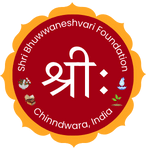A New Beginning!
Announcing Our Initiative on Shravan Purnima
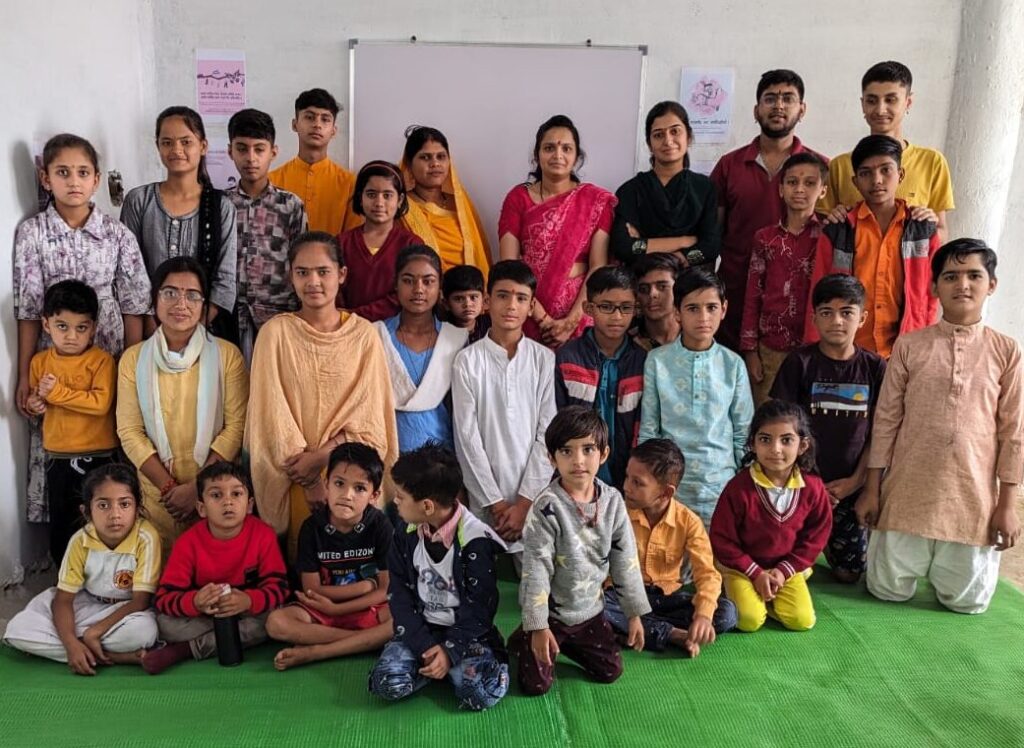
On this auspicious occasion of Shravan Purnima, with the blessings of Devi Bhuwaneshwari and the grace of our Gurus, we are thrilled to announce the launch of our new initiative at Bhuwaneshvari Foundation. As we embark on this journey, with our mission to to preserve and spread the timeless wisdom of Bharatiya culture while addressing contemporary needs.
Our Pathshala: A Blend of Tradition and Modernity
Our Pathshala stands on the foundation of Bharatiya Gyaan Parampara. We have created a seamless blend of Shastriya Gyaan (traditional knowledge) with contemporary subjects and technological advancements to offer a holistic educational approach for our students
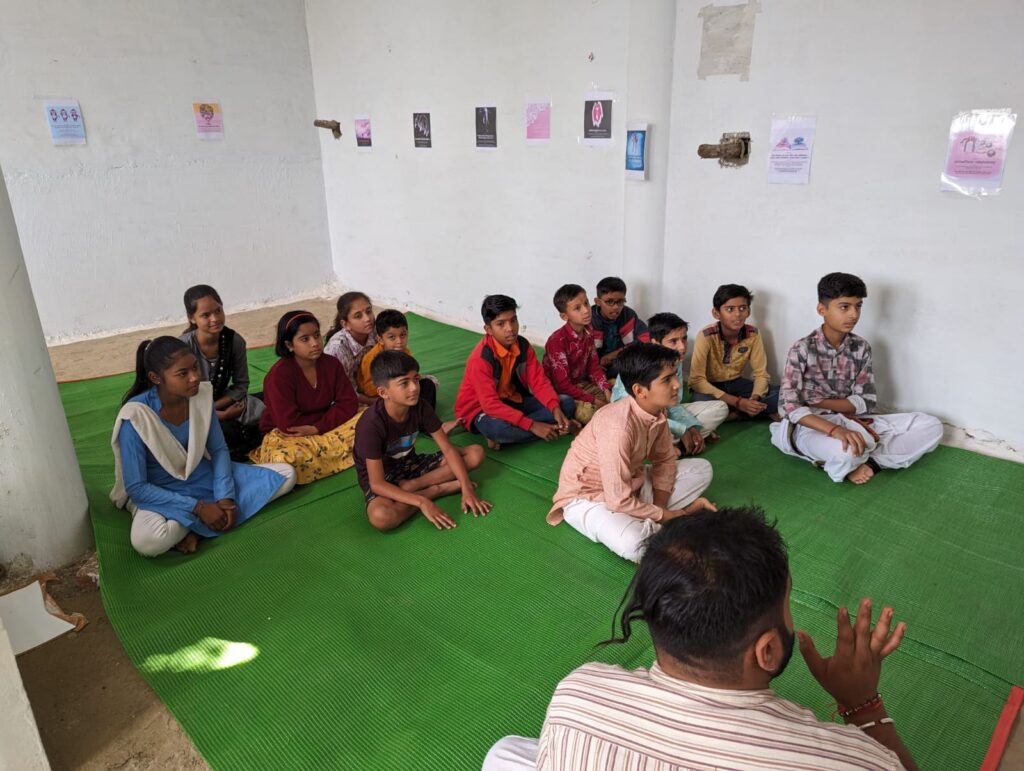
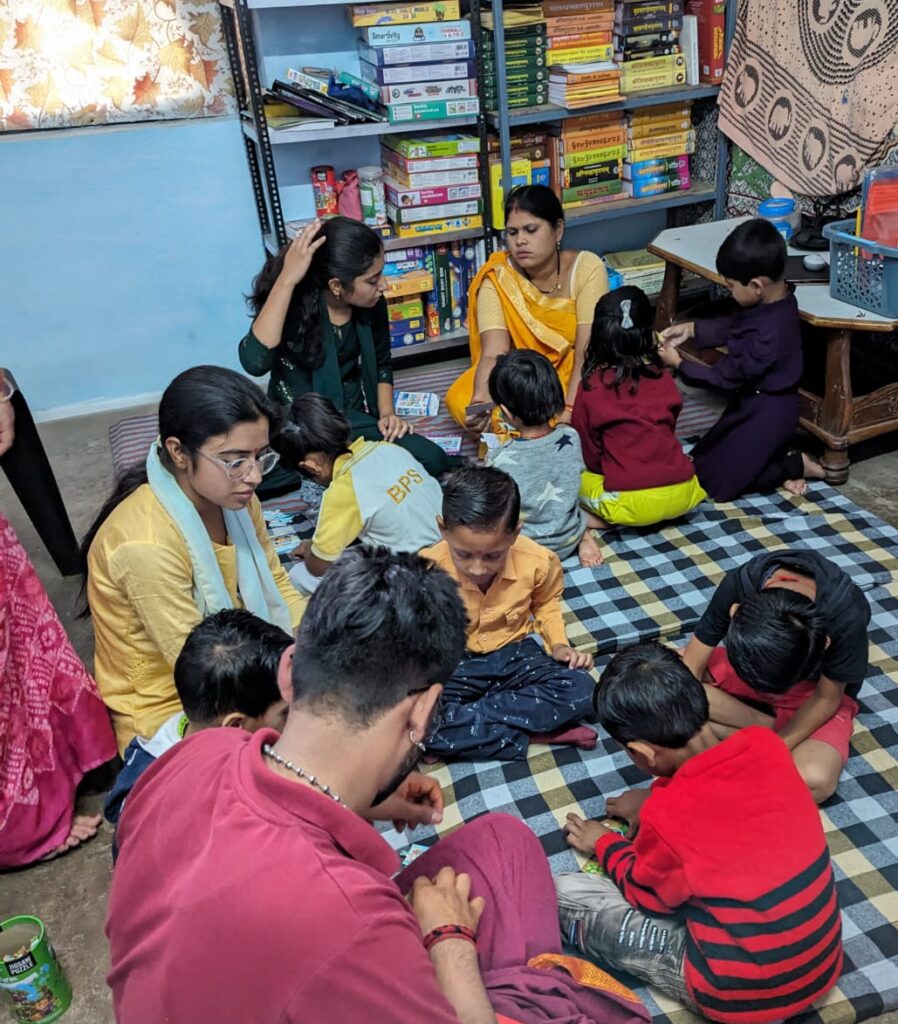
We emphasize a skill-based learning system, guided by our acharyas and traditional parampara, to equip students with practical skills essential for self-reliance and community development. This integration ensures that education not only imparts knowledge but also cultivates essential life skills and awareness.
So, why is this approach necessary?
A blend of the Gurukula system and modern subjects is a need for holistic education. Traditional education often neglects cultural awareness, value-based learning, and life skills, focusing mainly on academics. The Gurukula system, with its emphasis on biological, psychological, social, and spiritual growth, fills these gaps. Our pathshala integrates this wisdom with modern subjects like science and technology, ensuring students receive a balanced education.
Following the NEP 2020 guidelines, we ensure cultural immersion, ethical values, and practical life skills are part of our curriculum. This prepares students to face real-world challenges confidently, fostering well-rounded individuals grounded in their heritage and equipped for contemporary needs.
The Deha Framework: Nurturing the Whole Being
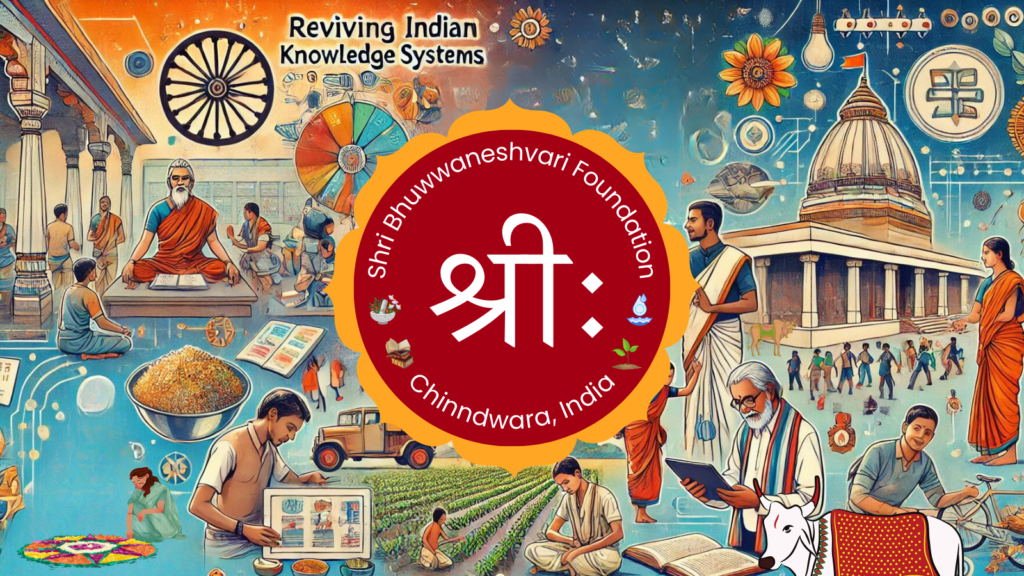
Our Pathshala framework is inspired by the concept of Deha as well-defined in our shastras:
Sthula Deha (Gross Body):
This refers to the physical aspect of existence. We focus on better infrastructure, space, facilities, and tools, always keeping our sustainability goals in mind.
Sukshma Deha (Subtle Body):
This encompasses the mind, intellect, and ego. Our focus here is the psychological development of students by incorporating the concepts of Chintana (thinking), Manana (reflection), and Nididhyasana (deep meditation).
Karana Deha (Causal Body):
The essence of our being. Our aim in this domain is the spiritual development of the student along with their Bio-Psycho-Social development. Through self-reflection via Shastras, Vedic studies, and yoga, students will foster a deep connection with themselves.
Aims and Objectives of our Pathashala
Establish a schooling system based on the traditional pathshala model, integrating Indian knowledge systems with modern technology.
1.Village-Centric Education: Develop high-quality educational institutions in villages to prevent the migration of students to urban areas. This ensures that students remain in their communities, contributing to local development.
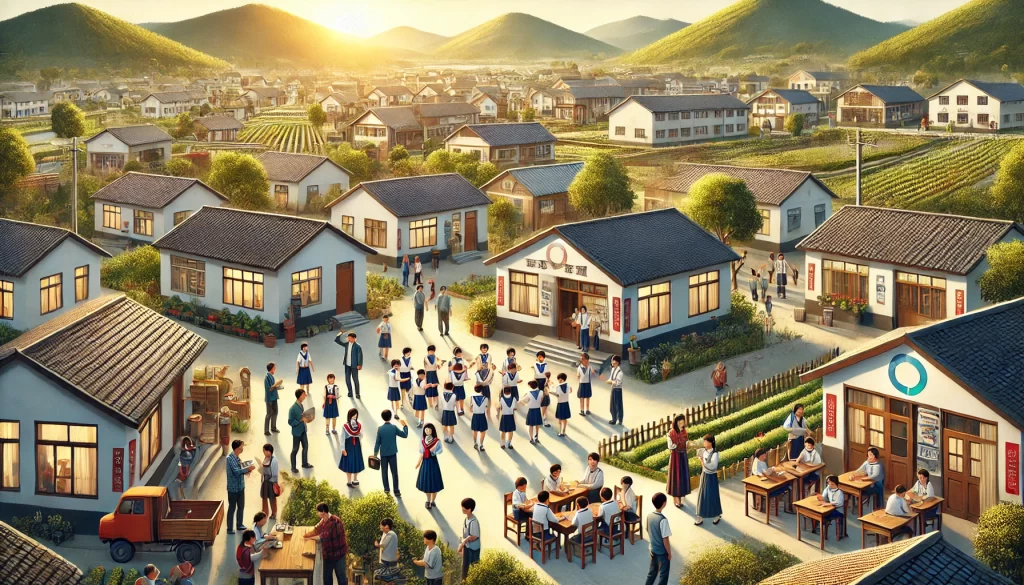
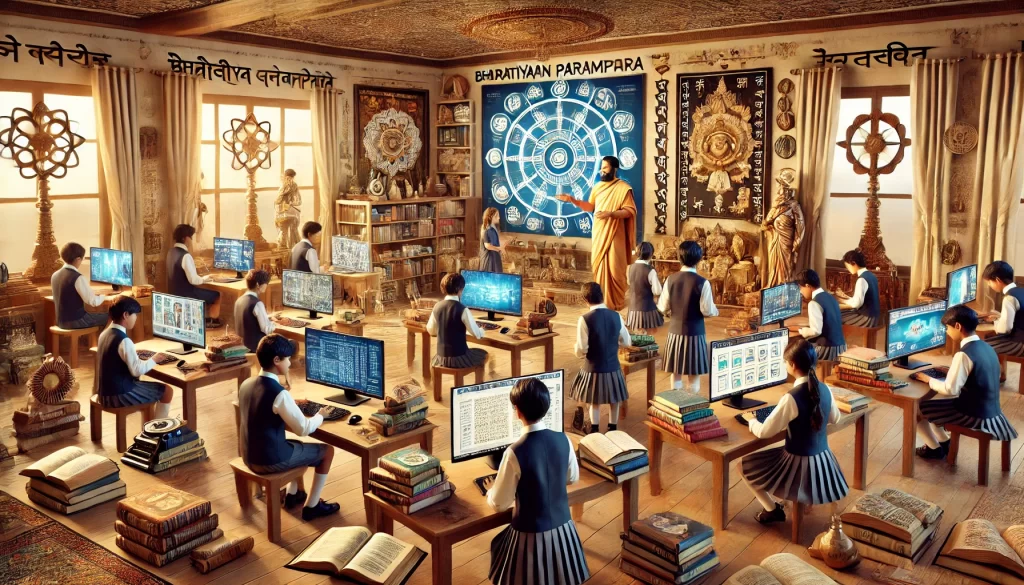
2. Integration of Indian Knowledge Systems: Incorporate Bharatiya gyaan parampara (Indian knowledge traditions) as the foundation of the curriculum, blending it seamlessly with contemporary subjects and technological advancements.
3. Skill-Based Learning: Focus on a skill-based education system guided by our acharyas (teachers) and traditional parampara (lineage). Equip students with practical skills for self-reliance and community development.
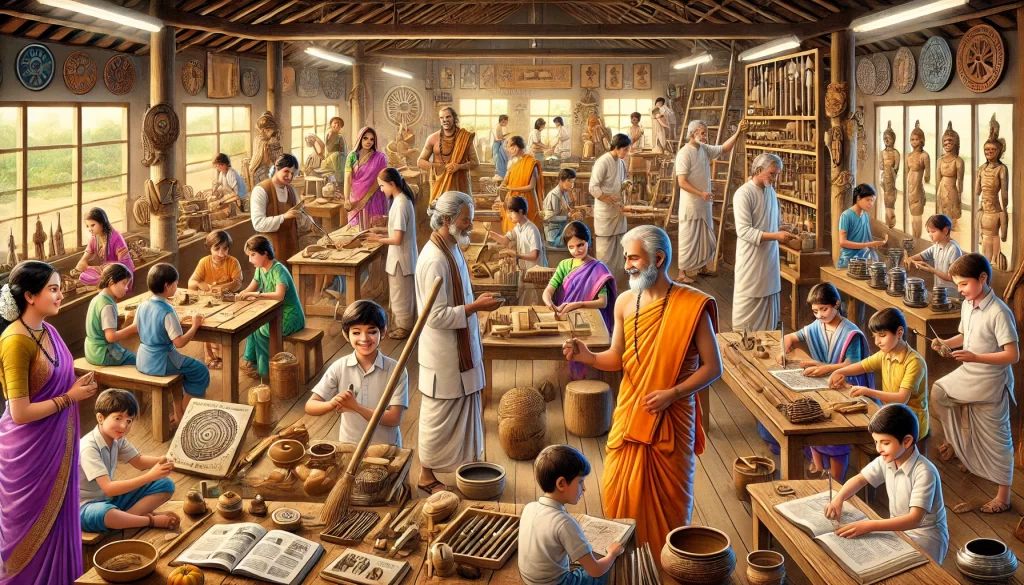
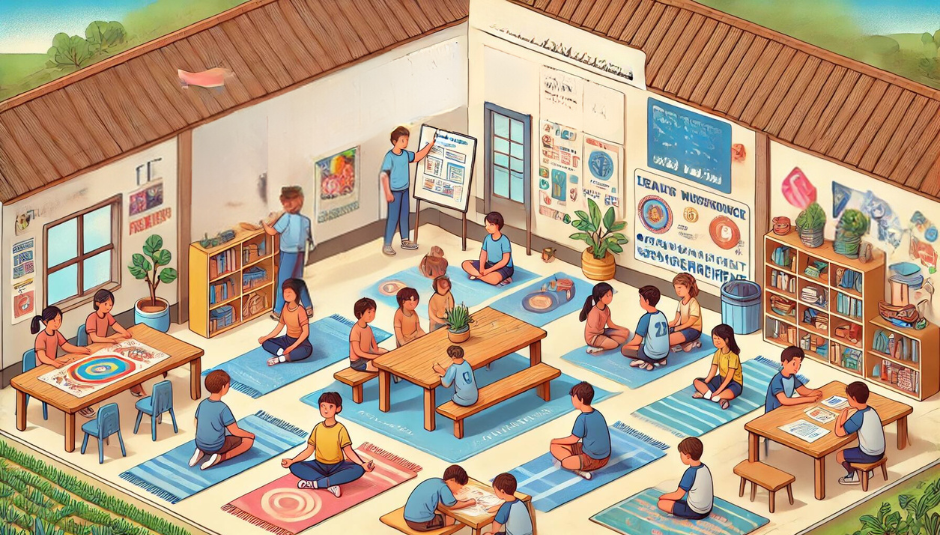
4. Mental Health Programs: Develop programs and workshops aimed at building resilience among students, teaching them coping strategies, stress management techniques, and the importance of mental strength.
5.Pauranic & Shastric Research Studies: Conduct research on blending ancient wisdom with contemporary practices, analyzing traditional Indian self-regulation systems within psychological frameworks, and developing psychological tools.
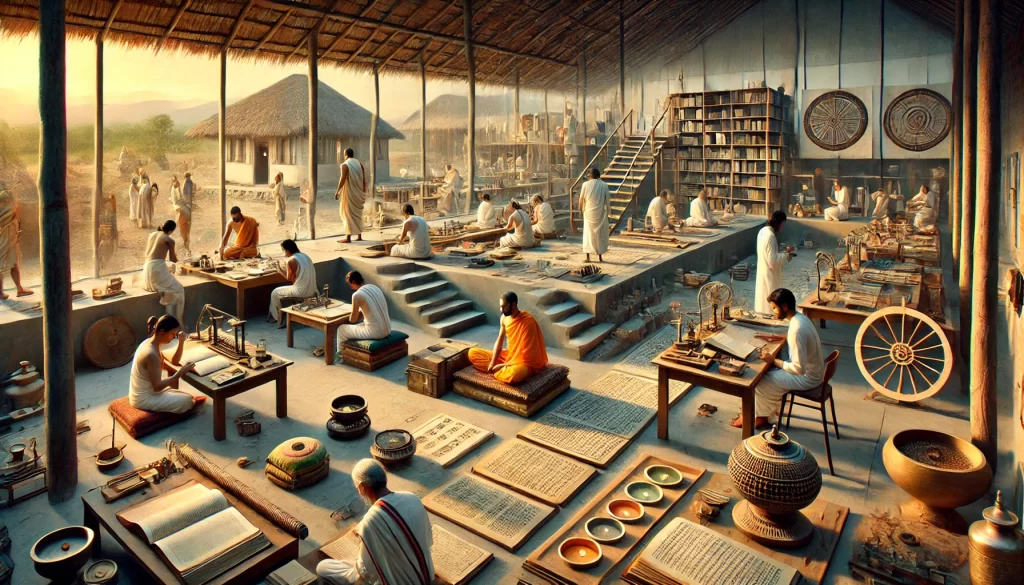
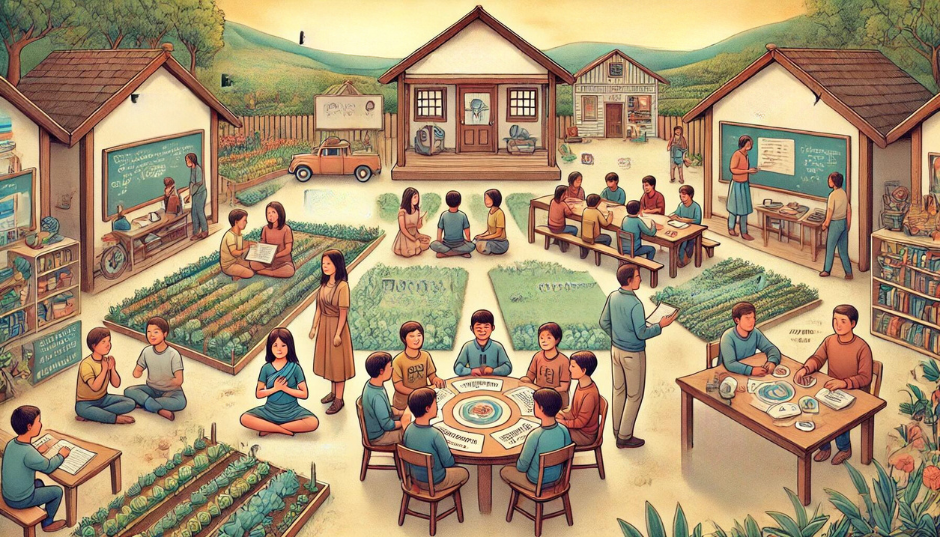
6. Dharmic Approach: Ensure students become experts in various aspects of life, with dharma (righteousness) as the guiding principle. Prepare future leaders capable of addressing global challenges with a strong ethical foundation.
Reviving Traditions: Connecting to Our Roots
We are working with local Acharyas to reintroduce practices such as Upanayanam , Sandhya Vandanam, and traditional festival and temple rituals. Engaging the community in preserving cultural heritage fosters pride and benefits society globally. It encourages cultural awareness and a connection to roots.
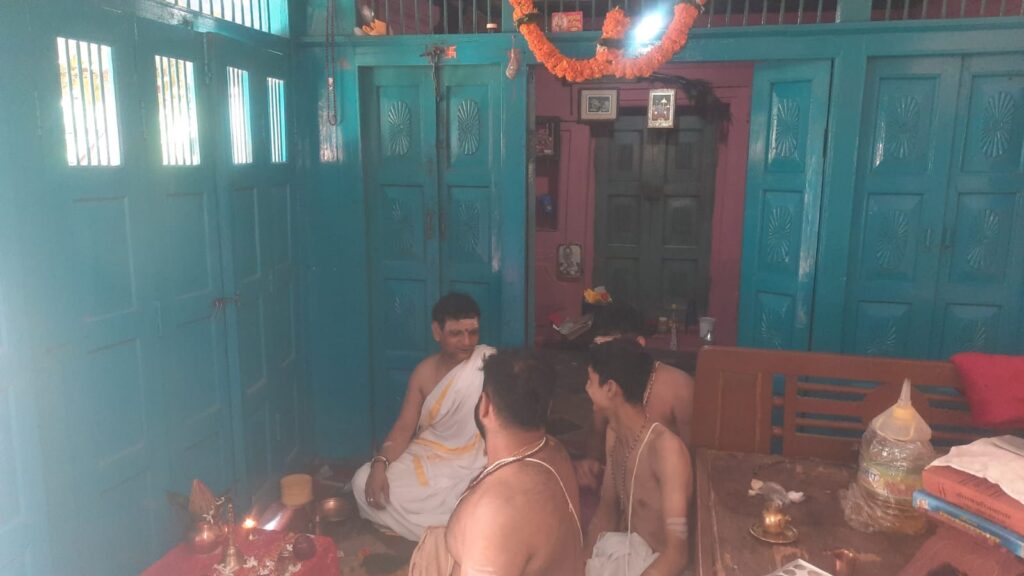
Temple Management: Supporting the Heart of Our Villages
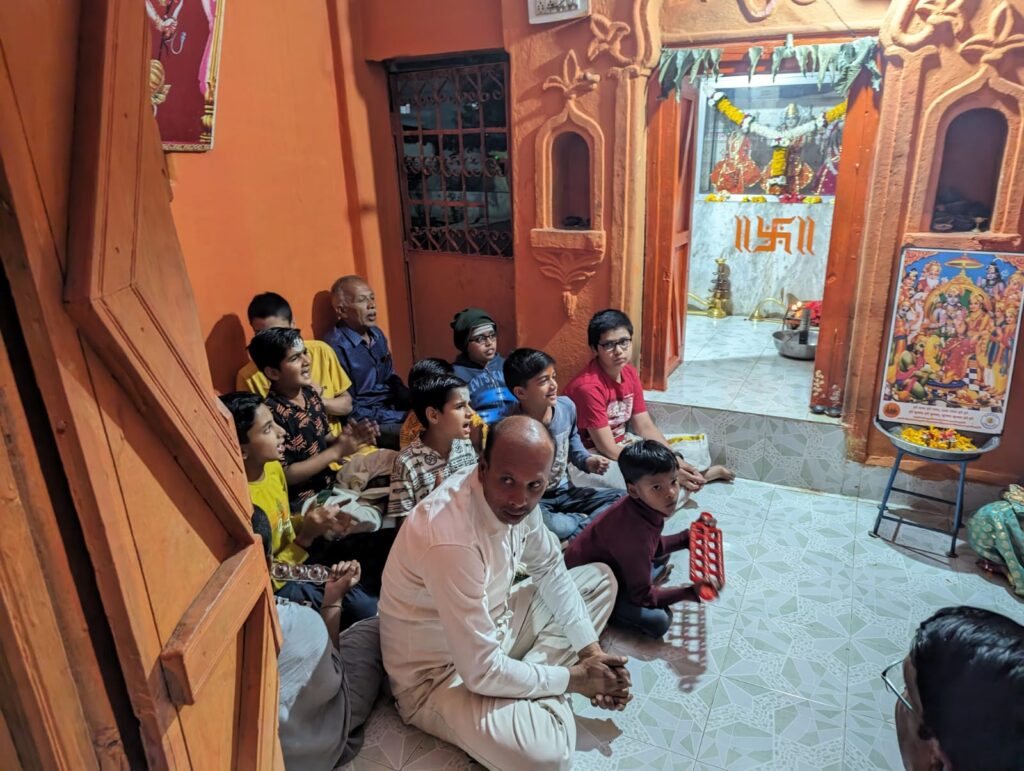
At Bhuwaneshvari Foundation, we are deeply committed to supporting the spiritual heart of our villages through the management of three sacred temples: a 100-year-old Hanuman temple, a Shiva temple, and a Shivani Devi temple. Each day,daily poojas and sevas are performed, ensuring that these spaces remain vibrant centers of devotion and community life.
On special occasions such as Mahashivaratri, Ram Navami, and Hanuman Janmotsav,Special utsavas are organised in village. These rituals not only invoke the deity’s grace but also help preserve and continue the age-old traditions that are the lifeblood of our cultural heritage. The temples resonate with the sounds of sacred chants and the rhythm of traditional music, creating an atmosphere of deep reverence and spiritual connection.
Through these efforts, we aim to keep the spiritual essence of our villages alive, providing a space where the community can come together in worship, reflection, and celebration.
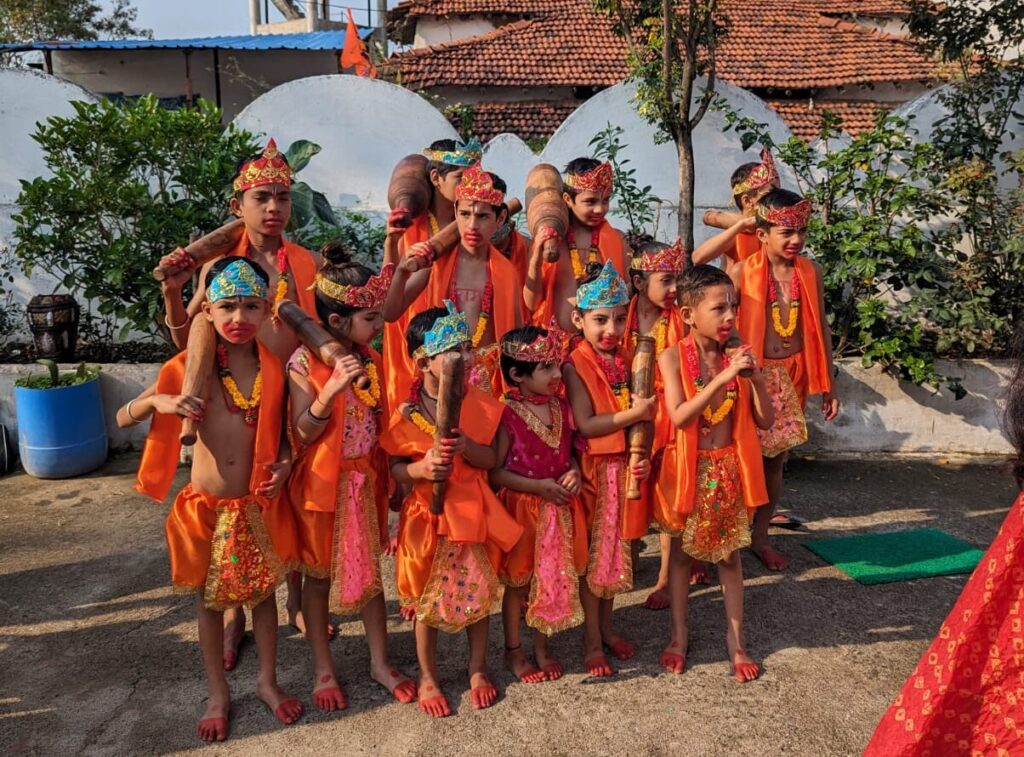
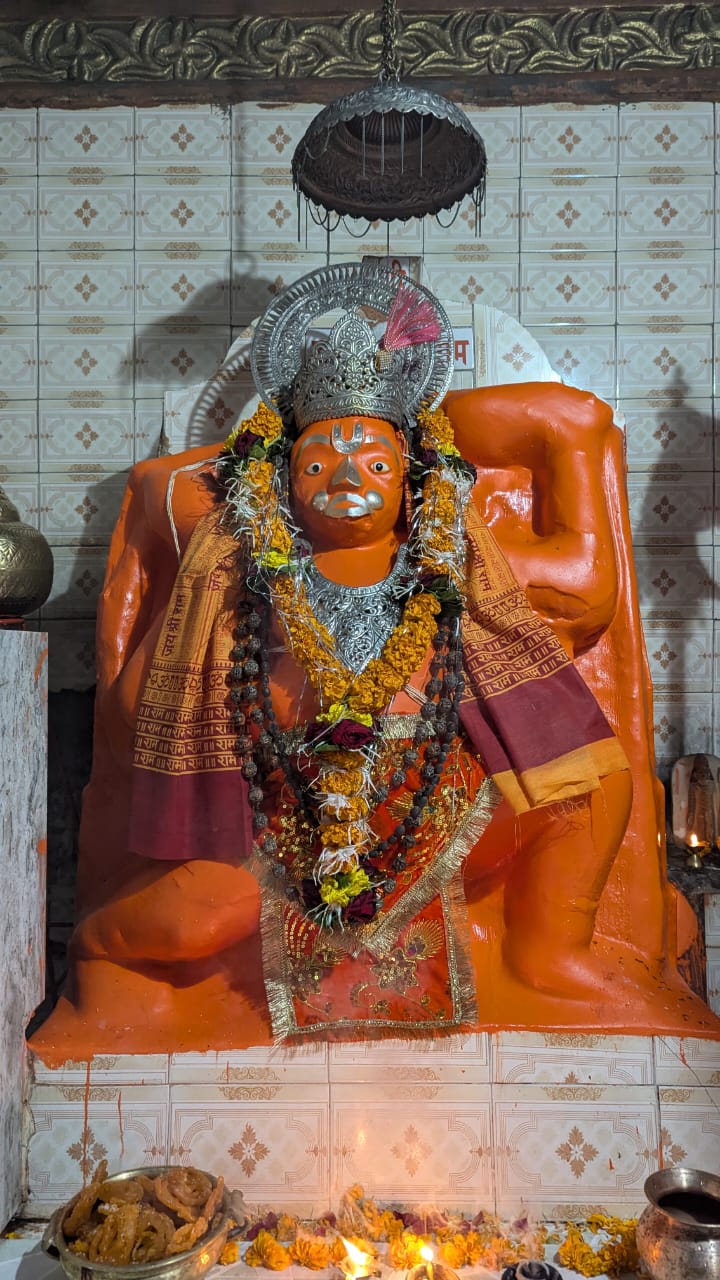
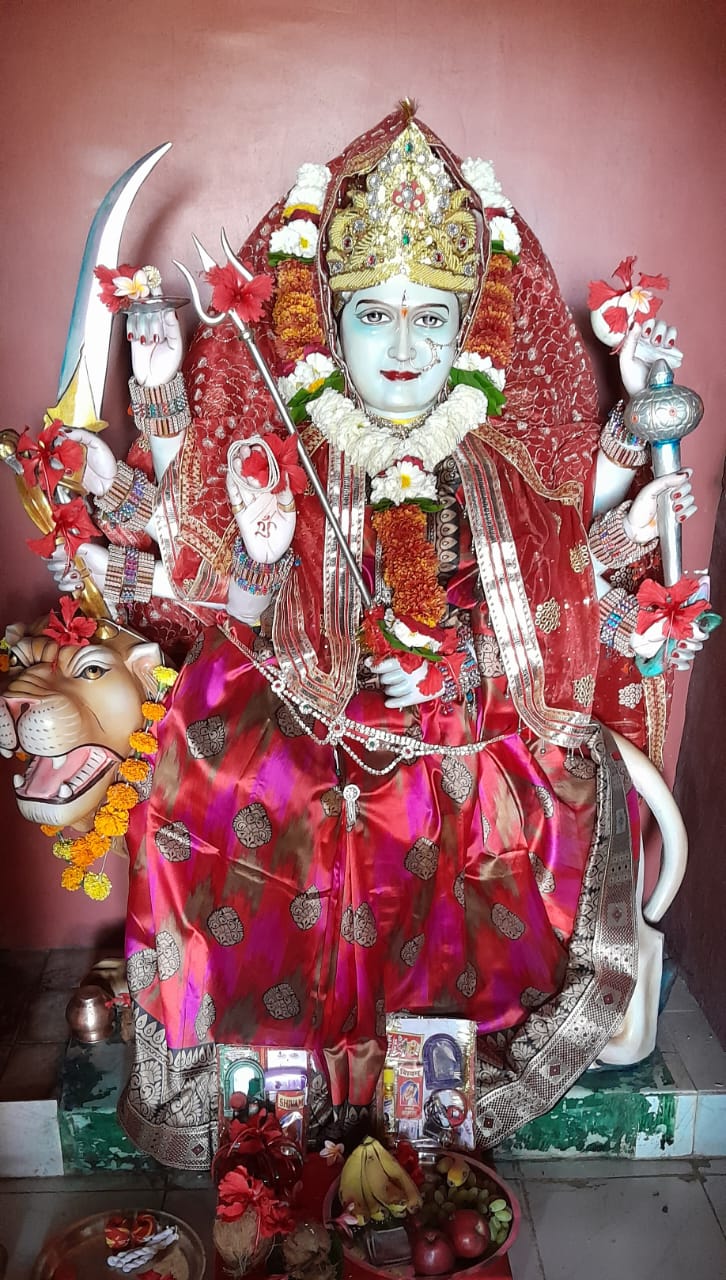
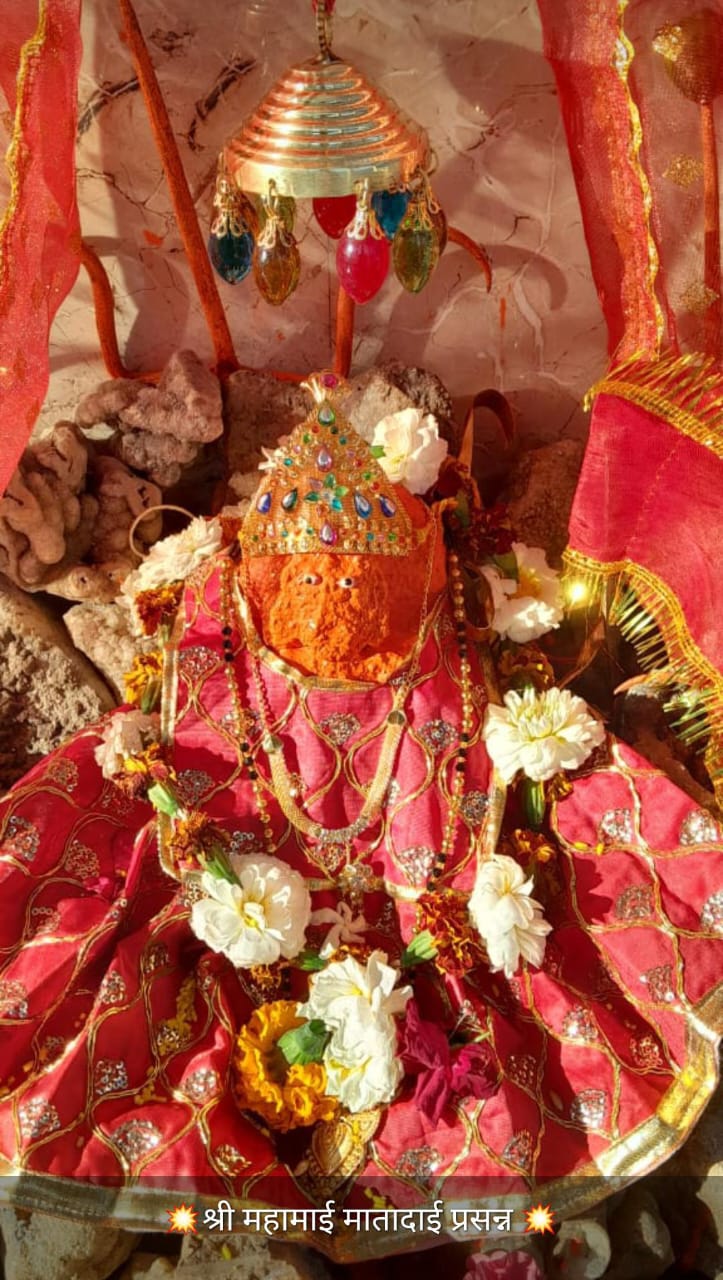
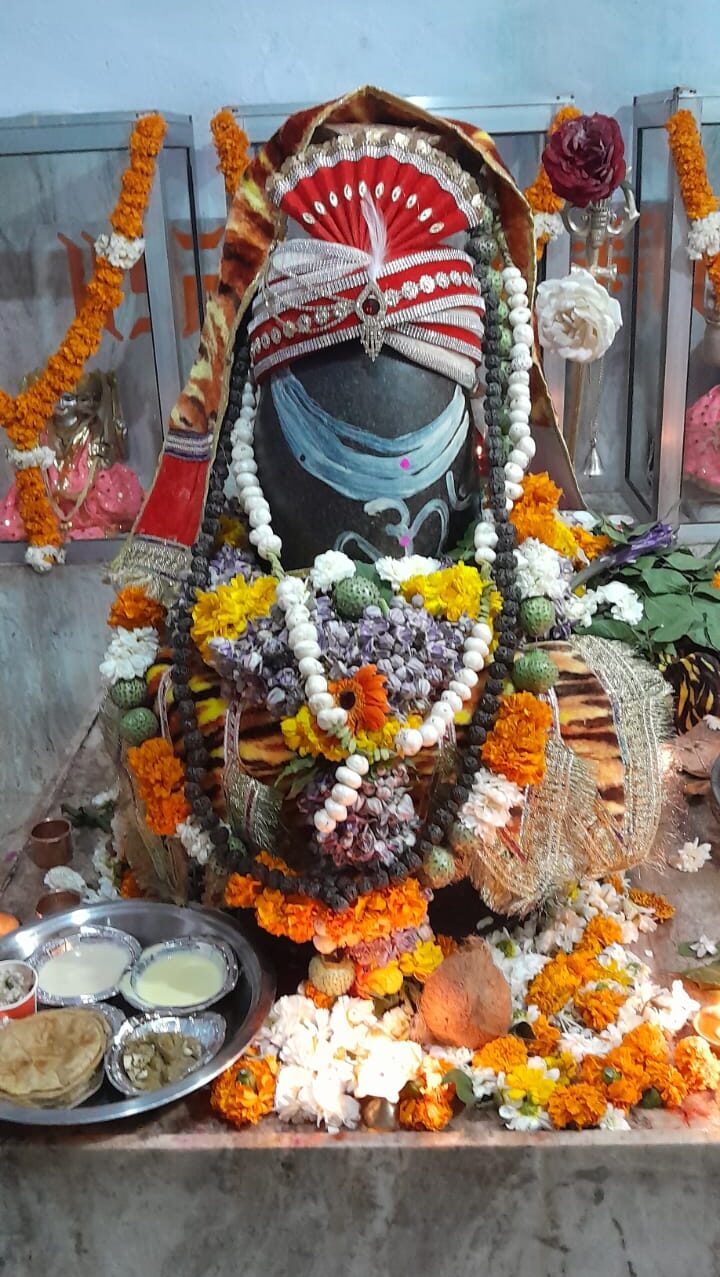
Gau Seva: Serving and Protecting our Gau Mata
Guided by the Bhagavad Gita’s teaching, “गावो विश्वस्य मातरः” (Cows are the mothers of the universe), our Gau Seva initiative focuses on rehabilitating abandoned and stray cows, providing them a safe haven to thrive. Through workshops and awareness campaigns, we aim to revive traditional practices that emphasize harmony with nature and welfare for all living beings.
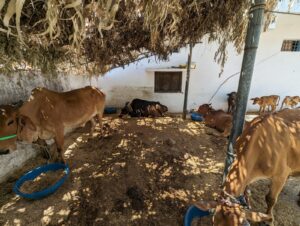
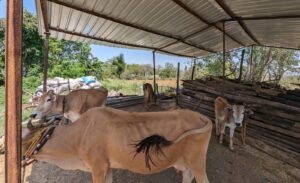
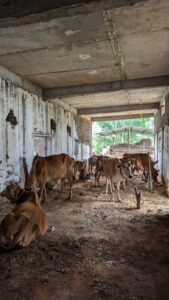
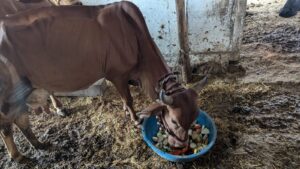
Physical Training: Empowerment Through Traditional Practices
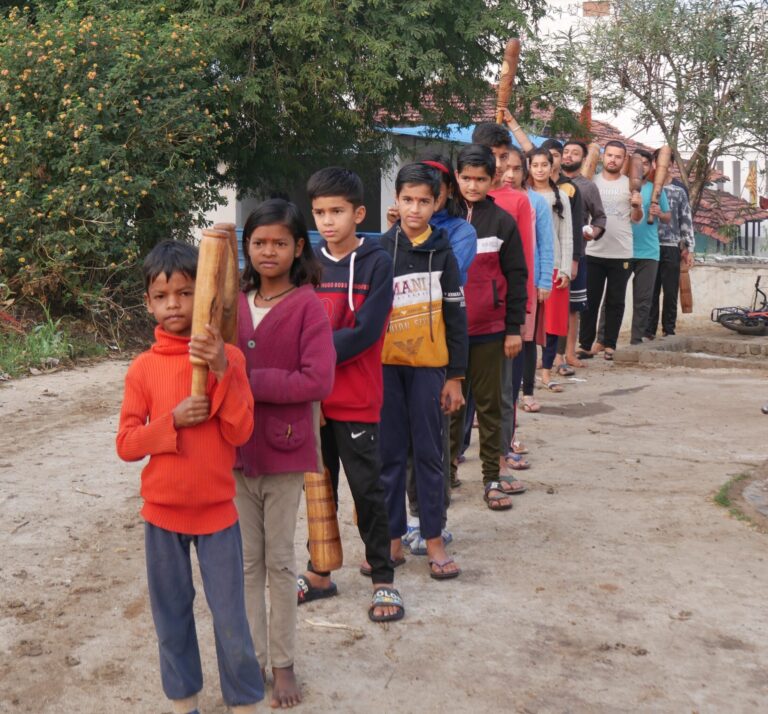
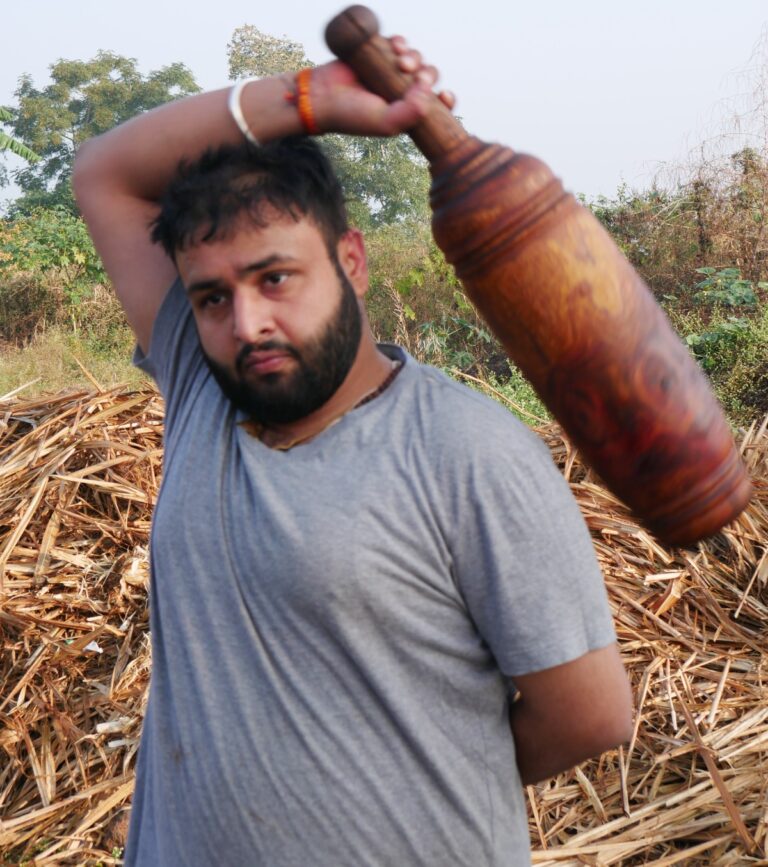
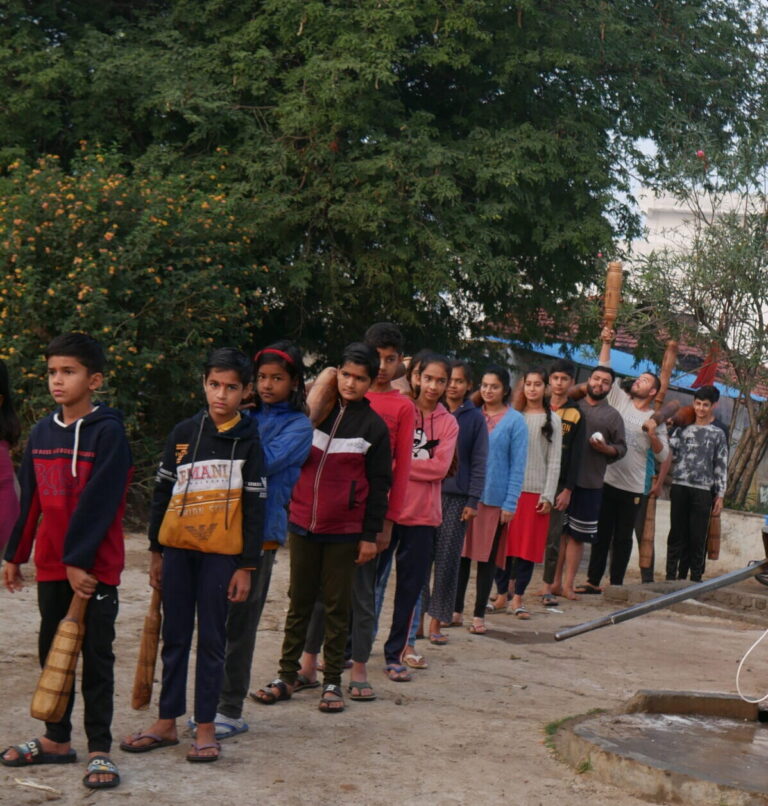
We also focus on physical training, providing invaluable lessons such as self-defense techniques using traditional tools like the club or mugdar, kusti (wrestling), and lathi (stick fighting). Guided by seasoned instructors, participants learn to harness their inner strength and cultivate a sense of empowerment.
In addition, we strive to make Yoga a part of everyday life, strengthening both the mind and physique of our children.
